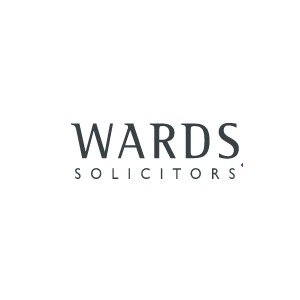Best Antitrust Litigation Lawyers in Bristol
Share your needs with us, get contacted by law firms.
Free. Takes 2 min.
List of the best lawyers in Bristol, United Kingdom
About Antitrust Litigation Law in Bristol, United Kingdom
Antitrust litigation, also referred to as competition law litigation, is a field of law that addresses unfair business practices and market distortions caused by anti-competitive behavior. In Bristol, United Kingdom, antitrust litigation is primarily concerned with investigating and remedying the unlawful conduct of businesses that restrict competition, such as price fixing, market sharing, bid rigging, and abuse of market dominance. The United Kingdom applies both domestic competition laws and relevant European Union laws where applicable. Antitrust cases often involve complex legal and economic issues, making it essential for individuals and businesses to understand their rights and obligations.
Why You May Need a Lawyer
There are several situations where you might require legal assistance with antitrust litigation in Bristol. Common scenarios include:
- Your business is being investigated for suspected participation in a cartel or other anti-competitive agreement.
- You believe your competitors are unlawfully conspiring to limit competition, affecting your business opportunities.
- You are accused of abusing your company's dominant market position, or are launching a complaint about another business’s conduct.
- You have suffered financial harm as a result of anti-competitive practices, such as price fixing or market exclusion, and wish to seek damages.
- You want to proactively review your business practices and agreements to ensure they comply with competition law.
- Your company is merging with or acquiring another business and you want to ensure the transaction does not violate competition rules.
Given the complexity of antitrust regulations and the significant financial and reputational risks involved, consulting with a specialist legal adviser can be invaluable.
Local Laws Overview
Antitrust litigation in Bristol, like the rest of the United Kingdom, is governed by a combination of national and, in some cases, retained European Union competition laws. The most relevant statutory provisions include the Competition Act 1998 and the Enterprise Act 2002.
Key points of the local legal framework include:
- The prohibition of anti-competitive agreements, such as cartels, under Chapter I of the Competition Act 1998.
- The prohibition of abuse of a dominant position under Chapter II of the Competition Act 1998.
- The roles of the Competition and Markets Authority (CMA) and, in some situations, sector-specific regulators in enforcing competition law.
- The possibility for affected parties to bring private actions for damages in the courts if they have suffered loss due to anti-competitive conduct.
- Criminal sanctions for individuals involved in cartel arrangements, including possible imprisonment and financial penalties.
- Legal regimes for reviewing mergers and acquisitions that may significantly lessen competition in the Bristol or wider UK market.
Bristol serves as a hub for many sectors - including finance, technology, and manufacturing - each presenting unique challenges and opportunities within the context of antitrust law.
Frequently Asked Questions
What is antitrust litigation?
Antitrust litigation refers to legal proceedings related to breaches of competition or antitrust law, usually involving claims of anti-competitive behavior like price fixing, market sharing, or abuse of market dominance.
What laws apply to antitrust cases in Bristol?
The primary laws are the Competition Act 1998 and the Enterprise Act 2002, with some influence from retained European Union laws where relevant.
Who enforces antitrust laws in Bristol?
The Competition and Markets Authority (CMA) is the main body responsible for investigating and enforcing competition law in the United Kingdom, including Bristol.
Can individuals or businesses bring private actions for damages?
Yes, businesses and individuals who have suffered harm due to anti-competitive conduct can bring private claims for damages in civil court.
What are common examples of anti-competitive behavior?
Common examples include price fixing, bid rigging, market sharing agreements, limiting production, and abusing a dominant position to exclude competitors.
What penalties can result from a breach of competition law?
Penalties can include significant fines for businesses, disqualification of company directors, and even criminal sanctions such as imprisonment for individuals involved in cartels.
How long do antitrust investigations and cases typically take?
The duration varies widely depending on the complexity of the case, the amount of evidence, and whether the matter is resolved through settlement or court proceedings. Some cases may last several years.
Can small businesses be affected by antitrust laws?
Yes, small businesses are subject to competition law and can both benefit from its protections and be held accountable for anti-competitive practices.
Is legal representation necessary for antitrust proceedings?
While not strictly required, it is highly recommended due to the technical nature of the laws and the significant risks involved.
What should I do if my business receives a notice of investigation from the CMA?
You should seek immediate legal advice, ensure no documents are destroyed, and cooperate with the investigation within the boundaries set by your legal team.
Additional Resources
For more information and guidance on antitrust litigation in Bristol, consider consulting the following resources:
- The Competition and Markets Authority (CMA) - the primary regulator for competition law in the UK.
- The Law Society - for finding solicitors experienced in antitrust litigation.
- Bristol Law Centre - offers advice and support for individuals and smaller businesses.
- Citizens Advice Bureau - provides basic guidance and can refer you to specialist legal help if required.
- UK Government publications on competition law - to understand your rights and obligations.
Next Steps
If you believe you need assistance with an antitrust matter in Bristol, consider the following steps:
- Gather all relevant information and documentation regarding your case or concern.
- Seek an initial consultation with a solicitor or law firm specialising in competition law and antitrust litigation.
- Discuss the specific circumstances and possible outcomes with your lawyer to understand your position and options.
- If you are facing investigation, act quickly to ensure timely compliance and appropriate legal protection.
- For proactive advice, schedule regular reviews of your business practices with your legal team to ensure ongoing compliance.
Being proactive and seeking prompt legal advice will help protect your interests and navigate the complexities of antitrust litigation in Bristol.
Lawzana helps you find the best lawyers and law firms in Bristol through a curated and pre-screened list of qualified legal professionals. Our platform offers rankings and detailed profiles of attorneys and law firms, allowing you to compare based on practice areas, including Antitrust Litigation, experience, and client feedback.
Each profile includes a description of the firm's areas of practice, client reviews, team members and partners, year of establishment, spoken languages, office locations, contact information, social media presence, and any published articles or resources. Most firms on our platform speak English and are experienced in both local and international legal matters.
Get a quote from top-rated law firms in Bristol, United Kingdom — quickly, securely, and without unnecessary hassle.
Disclaimer:
The information provided on this page is for general informational purposes only and does not constitute legal advice. While we strive to ensure the accuracy and relevance of the content, legal information may change over time, and interpretations of the law can vary. You should always consult with a qualified legal professional for advice specific to your situation.
We disclaim all liability for actions taken or not taken based on the content of this page. If you believe any information is incorrect or outdated, please contact us, and we will review and update it where appropriate.













